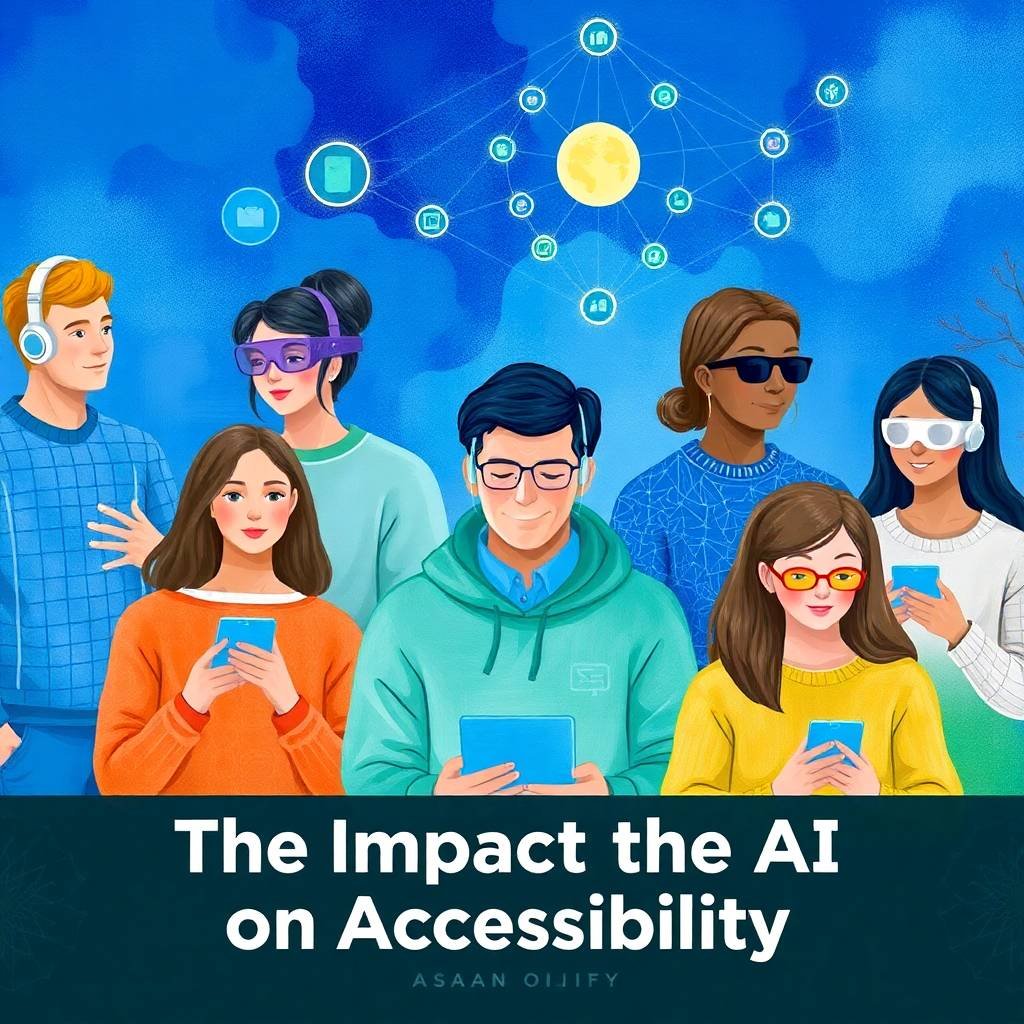Introduction
In today’s rapidly advancing technological landscape, Artificial Intelligence (AI) stands out as a transformative force, particularly in the realm of accessibility. By leveraging AI, we are breaking down barriers and creating more inclusive environments for people with disabilities. AI is empowering individuals to engage with technology and the world around them in unprecedented ways, fostering independence and inclusivity.
Understanding AI in Accessibility
What is AI?
Artificial Intelligence (AI) refers to the development of algorithms and systems that perform tasks requiring human-like intelligence. In accessibility, AI processes large datasets to improve user interactions and tailor support for individuals with diverse needs.
Key AI Technologies Enhancing Accessibility
- Natural Language Processing (NLP): This technology facilitates voice recognition and communication aids, enhancing interaction for individuals with speech or hearing impairments.
- Computer Vision: It provides object recognition and navigation aids, greatly benefiting those with visual impairments by helping them understand their surroundings.
- Machine Learning: Allows for the personalization of user experiences by adapting technologies to individual needs and preferences, ensuring a more tailored and effective interaction.
Applications of AI in Accessibility
Voice Assistants and Speech Recognition
AI-powered voice assistants like Siri, Alexa, and Google Assistant have become essential tools for individuals with mobility or vision impairments. These technologies enable hands-free operation, allowing users to perform tasks through voice commands, thereby promoting greater independence.
Real-Time Captioning and Translation
AI-driven captioning services provide real-time subtitles for spoken content, significantly enhancing accessibility for individuals with hearing impairments. Additionally, AI can translate content into multiple languages, breaking down language barriers and improving global communication.
Assistive Technologies for Visual Impairments
AI applications such as screen readers and object recognition tools assist those with visual impairments in navigating both digital and physical environments. These tools can describe images, read text aloud, and identify objects in real-time, enhancing autonomy and interaction.
Customized Learning and Communication Tools
AI enables the creation of personalized educational tools tailored to the learning styles and needs of individuals with cognitive or learning disabilities. These tools can adjust content, pacing, and methods to optimize learning experiences, ensuring inclusivity in educational settings.
Benefits of AI in Accessibility
Enhanced Independence
AI technologies empower individuals with disabilities by providing tools that support autonomy, enabling them to navigate daily tasks with greater ease and confidence. This fosters a sense of independence and self-reliance.
Improved Communication
AI facilitates communication through advanced speech recognition, real-time translation, and adaptive interfaces, bridging communication gaps and fostering greater connection and understanding among diverse groups.
Increased Participation
AI-driven accessibility tools allow individuals with disabilities to fully participate in work, education, and social activities. This promotes inclusivity and equal opportunities, ensuring that everyone can contribute to and benefit from society’s advancements.
Personalized Experiences
AI personalizes user interactions by adapting technologies to individual preferences and needs, providing more effective and tailored support. This enhances the overall user experience and satisfaction.
Conclusion
AI is playing a transformative role in enhancing accessibility, offering innovative solutions that empower individuals with disabilities and promote inclusivity. As AI technology continues to evolve, its impact on accessibility will grow, creating a more inclusive world where everyone can engage with technology and society on their terms. By addressing challenges such as data privacy and ensuring ethical use, AI can significantly enhance the lives of individuals with disabilities, providing them with greater independence and opportunities. The future of accessibility is bright, with AI leading the way to a more equitable and connected world.

